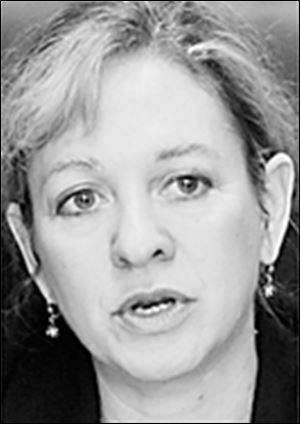
Consumer chief sets the bar
9/17/2004
Migden-Ostrander
The staff of the Ohio Consumers' Counsel, which represents state consumers in utility matters, has "always acted in a very appropriate manner, adhering to the codes of conduct and the laws and regulations of the state of Ohio," said Janine Migden-Ostrander, who was appointed as consumers' counsel in March, during a taping yesterday of The Editors television program.
Her predecessor, Robert Tongren, resigned as consumers' counsel in November after allegations that he destroyed a costly consultant's report and accepted gifts and gratuities from utilities.
Ms. Migden-Ostrander said that when she took the job, she reported to the state inspector general that her office would hold onto records longer and keep electronic copies in the office.
She also enacted a new code of conduct that says "no employees are allowed to accept any meals, any gratuities, or anything from any utility company or any body we may come in contact with in the course of our business under any circumstance," she said. "And that's more stringent than what the state law currently requires."
But because staff members already behave that way, the code of conduct really is aimed at whoever is the Consumers' Counsel.
"I think it was incumbent upon me, coming in as the new Consumers' Counsel, to demonstrate that I was going to enforce that standard and adhere to that standard myself, and that's what I've tried to do," Ms. Migden-Ostrander said.
She was questioned by Thomas Walton, vice president-editor of The Blade.
The Editors will be broadcast at 8:30 tonight on WGTE-TV, Channel 30, and 12:30 p.m. Sunday on WBGU-TV, Channel 27.
Electric utility deregulation is still in transition and the power market is not yet fully competitive, but ultimately consumers will be better off, she said.
For now, rates in northwest Ohio remain high.
"FirstEnergy has some of the highest rates in the state and Toledo Edison's rates are among the very highest in the whole state, which is what led in part to deregulation," she said. "It was the whole notion that an act of geography shouldn't set the rate that somebody would be subjected to, that there should be more equality in rates around the state."
She said her office is working to creative a competitive market for electricity.
"Until we get a 100 percent purely competitive market, I think customers in the northwest part of the state are going to end up paying more than customers in other parts of the state," she said.